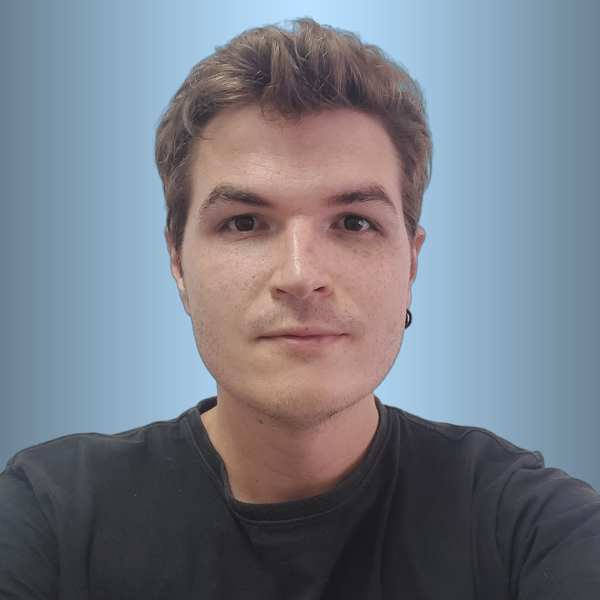Profile 🗒️
A brief academic history
I earned my Ph.D. in Computer Science from the Federal University of Espírito Santo (Vitória, Brazil) in 2020, under the supervision of Prof. Dr. Renato A. Krohling. During my studies, I spent almost a year as a visiting graduate research student at Dalhousie University (Halifax, Canada), working with Prof. Dr. Thomas Trappenberg and Prof. Dr. Sageev Oore.
My Ph.D. research focused on developing algorithms to combine images and metadata for various medical image problems, particularly skin lesion detection. During this time, I led a non-profit project in Brazil from 2017 to 2020, which developed an application to assist in skin cancer detection using images from smartphones and patient clinical information. This work resulted in multiple publications, which you can find in my list of publications. Additionally, you may download my Ph.D. thesis here.
Prior to my Ph.D., I obtained my M.Sc. degree in Computer Science at UFES, where I worked on methodologies for combining an ensemble of classifiers. You can also download my M.Sc. dissertation from the university’s repository. Furthermore, during my undergraduate studies in Computer Engineering at UFES, I worked on various projects that you can find in my undergraduate portfolio. One of the most exciting projects was founding the UFES robotic team, ERUS, with my colleagues, and winning some robotics competitions promoted by IEEE, which you can find in my list of awards and prizes.
Professional Experience
For a complete description, please, refer to my Curriculum Vitae
- Jul 2022 - Now: Assistant Professor at the Federal University of Espírito Santo (UFES)
- Aug 2020 - Jun 2022: Artificial Intelligence Researcher Specialist at Samsung Electronics
- Jan 2017 - Jan 2019: Research Assistant at the Federal University of Espírito Santo (UFES)
- Jan 2016 - Jan 2017: Software Engineer at Sharespot Inc
- Jan 2014 - Jan 2016: Research Assistant at the Federal University of Espírito Santo (UFES)
- Feb 2013 - Jan 2014: Software Engineer Intern at Padtec S/A
- Feb 2011 - Jan 2012: IT Analyst Intern at Núcleo de Cidadania Digital (NCD)
Programming Languages, Libraries, and Frameworks I’ve worked with
- Python, PyTorch, TensorFlow, Scikit-learn, OpenCV, NumPy, Pandas, and Matplotlib
- C, MATLAB, Java, and Kotlin
- Android, Jekyll, Spring Boot, Angular, React-native, SQL, HTML, and CSS
- Git, Docker, and Latex
- ESP-32, Arduino and Raspberry-Pi
For more information, you can check my Github and/or my Engeneering Portfolio, in which I present some cool projects I developed throughout my undergraduate.
Volunteer work
In addition to my research and professional pursuits, I am involved in multiple volunteer projects that aim to improve people’s lives. Below are the main projects I have been working on:
-
PAD-UFES (2017-2020, 2022-now): I have led a team that developed and currently maintains a web-based system and smartphone application called PAD-UFES (2017-2020, 2022-now). The system, built with Spring-Boot, Angular, and MySQL, allows doctors to track moles and spots on patients’ skin, leading to better care. Our team provides ongoing IT support for the program, and you can learn more about it by clicking here.
-
Orienta Covid ES HUCAM UFES (2020): this project was created by professors and doctors from the University Hospital of UFES (HUCAM) to provide guidance on COVID-19 to the general public. I volunteered by providing IT support and developing a web server using Java/SpringBoot, Angular, MySQL, and AWS, which helped doctors store data from their appointments.
-
Kanguru Project (2016): As a volunteer at Kangaroo, a UFES project that supports pregnant teenagers in the Espírito Santo state, I worked as a data scientist to help researchers analyze the data they collect from their patients. This is a significant health issue in Brazil, and I was happy to contribute my skills to help make a difference.
-
PASUFES (2012-2013): I helped to found a preparatory course to assist low-income people in achieving good scores in Vestibular. In Brazil, to get a spot in a (public and free) university, we need to take an exam called vestibular. All university spots are filled according to the vestibular score. I taught physics in this project (high school level) and some of my students got a high scores on the exam. Sometimes, I see some of them in the university aisles and it’s very satisfying.
Computação inteligente
Computação inteligente is my amazing humble blog.
I write in Brazilian-Portuguese about my topics of interest at an easily understandable level. My main goal with this blog is to help students understand the algorithms concepts. But why don’t write in English? Well, many people in Brazil don’t speak English or don’t feel comfortable with the language. So, I’d like to help them. Also, all my undergraduate and graduate studies were done for free in a public university. This is a way to return to my community the investment that was done on me.
